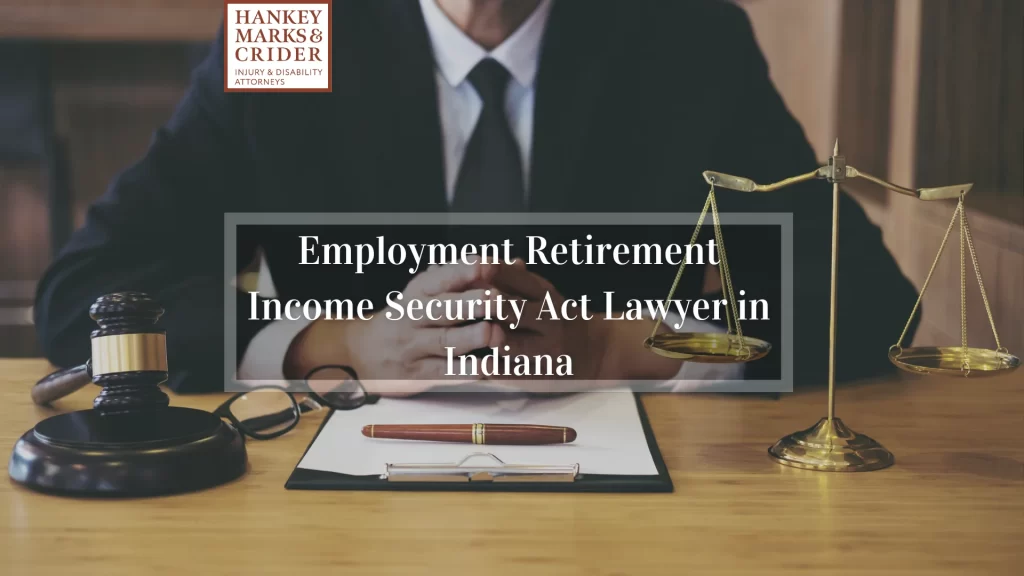
The Employment Retirement Income Security Act (ERISA) is designed to address issues pertaining to inadequate pensions for retirees. This bill was passed in 1974 by President Gerald Ford, and has since regulated the pension plans offered by employers.
If you or someone you love has experienced an ERISA violation, you may be able to take legal action against the careless party. The dedicated and experienced Indiana ERISA attorneys of Hankey Marks & Crider understand how frustrating these violations can be and are prepared to help anyone suffering from this type of unlawful action. Contact our offices at (317) 634-8565 to discuss your case with a member of our knowledgeable legal team today.
How We Can Help
By setting a standard for pension plans and providing guidelines for federal income taxes that have a direct effect on the benefits received from these plans, ERISA can help protect both employees and the organizations providing the benefits. In order to ensure that all parties are aware of the benefits that will be provided, ERISA requires that all relevant information is disclosed up front.
Our attorneys are prepared to handle any ERISA issues pertaining to:
- Bad Faith Litigation
- Breach of Fiduciary Duty
Employees should not be denied their full pensions after they have reached the end of their required term of service, and cannot be discriminated against for any reason. Any violations of these rights may be grounds for legal action.
Contact Us
If you or someone you love has suffered from an ERISA violation, the Indiana ERISA attorneys of Hankey Marks & Crider may be able to help. Contact us at (317) 634-8565 to discuss your concerns with a member of our legal team.
ERISA FAQs
What is ERISA?
ERISA, or the Employee Retirement Income Security Act of 1974, is a law which sets minimum standards for retirement plans in the private industry and which protects the assets of millions of Americans so that their money is there for them when they retire. The law does not require employers to have retirement plans but sets minimum and universal standards for the ones that do. The law does a number of things, including requiring employers to provide participants with important information about their retirement plan, defining how long a participant must work before being eligible to participate in a plan, how long they must work before collecting benefits, and how long before they have a nonforfeitable right to those benefits, among a number of other standards.
What are some of the amendments made to the ERISA and how do they help protect workers?
Since its enactment in 1974, the ERISA has a undergone several amendments that were passed to better protect workers under the act. Some of these amendments include the Consolidated Omnibus Budget Reconciliation Act (COBRA), which provides ongoing health care coverage for a certain amount of time after an employee is terminated or leaves their job; the Mental Health Parity and Addiction Equity Act (MHPAEA), which ensures that mental illness is treated with the same care and equity as other illnesses; and the Health Insurance Portability and Accountability Act (HIPAA), which aims at making health care coverage more secure for those with preexisting conditions.
What are the two types of pension plans under ERISA?
The type of pension plans under ERISA are “defined benefit plans” and “defined contribution plans”. Both plans provide participants with money after they retire, but in different ways. A defined benefit plan provides a specified monthly benefit at retirement. Defined contribution plans, on the other hand, work by having an employee, their employer, or both contribute to an individual’s account at a set rate over time and generally invests this amount, and the employee receives this balance in their account after retirement. Examples of defined contribution plans include 401(k)s, employee stock ownership plans, and profit-sharing plans.


